By joining together to promote health and wellness from the ground up, several local entities have created opportunities for people to curb food insecurity and grow their own nutritious fruits and vegetables while building community connections.
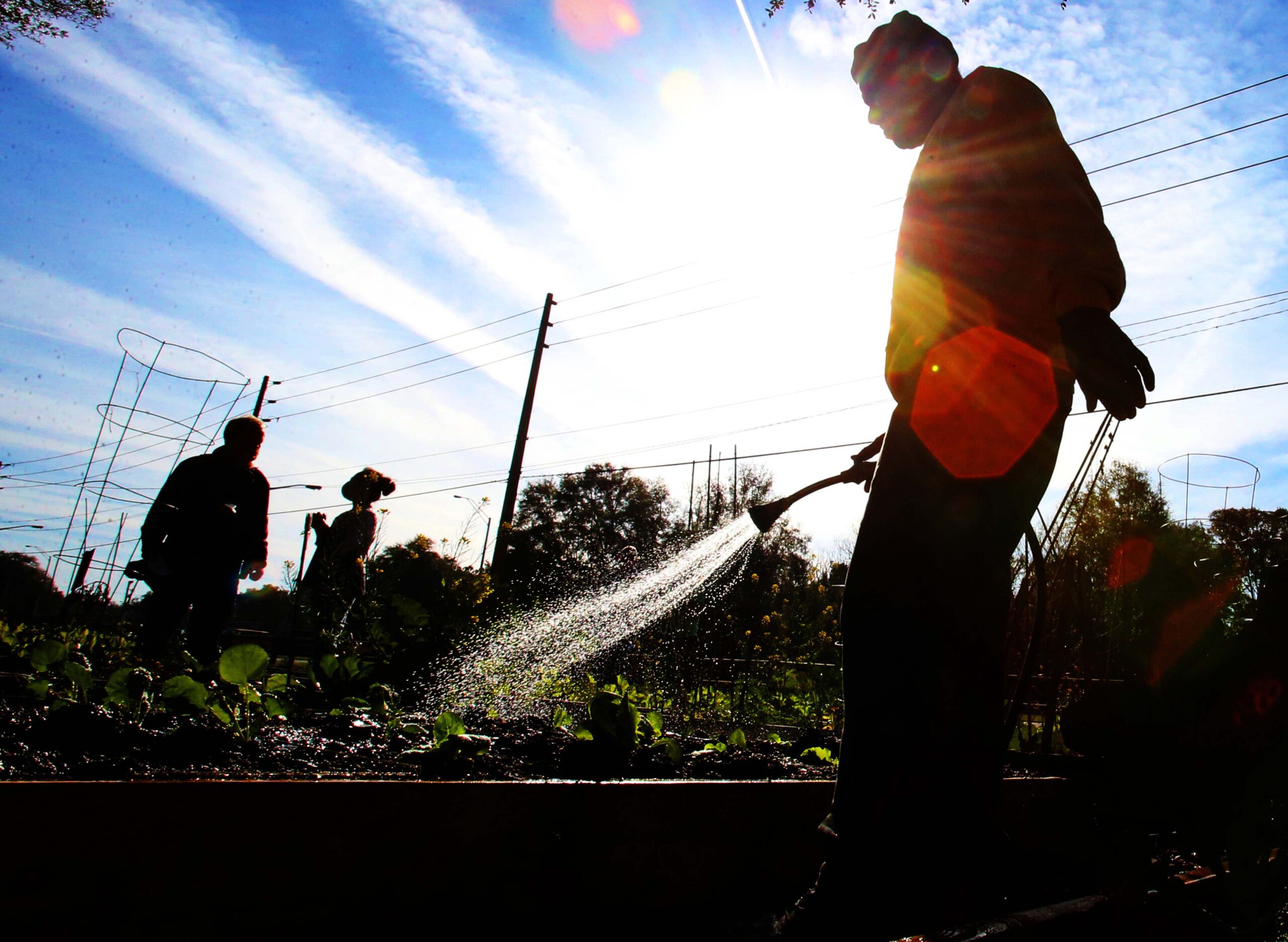
A bright morning sun beams down on several gardeners bent over raised beds inspecting their winter crops. Their cheerful chatter is as colorful as the bright leafy greens, giant yellow sunflowers and deep purple blossoms of blue porterweed, a Florida native that is great for attracting pollinators..
The Ocala Wellness Community Garden is filled with an abundant array of vegetables, herbs, flowers and even a papaya tree. And those who toil there also grow a sense of health, well-being and family.
“Everybody brings something to the table,” says Rachelle Roper, founder of the Feed the Need Garden nonprofit, one of four partners in the garden. “Everybody shares ideas, cuttings, starter plants or seeds, and it goes beyond growing food: It’s family, it’s friendship, it’s community.”
The community garden is a partnership between the city of Ocala, Florida Department of Health in Marion County, Marion County Hospital District and Feed the Need Garden. Participants pay $10 a year for one garden plot, which includes a raised bed, soil, seeds, fertilizer, gardening tools and access to water. The garden, at 2233 West Silver Springs Boulevard, got its seed of a start in January of 2016, when members of the agencies worked to find solutions for neighborhoods like this one that have limited access to affordable and nutritious food, traditionally referred to as a food desert.
“There is no grocery store within walking distance, so this was to be able to offer fresh, healthy food to people in the community,” explains Roper. “It was initially started to help people have better access to fresh, healthy food, to be more active, to get them outdoors, just overall better health in general.”
Before the first spade of soil was turned eight years ago, the partner agencies walked the nearby neighborhood and polled residents, and “they were excited,” notes Tracey Sapp, the health education program manager for the Florida Department of Health in Marion County.
“Getting healthy choices for them was difficult, and it relates to chronic diseases as a whole, whether it’s your heart or diabetes, and when we talk about decision making and healthy choices, this is your first one,” Sapp says as she surveys the garden beds. “And getting out here is good for your mental wellness and getting vitamin D from the sun. It’s mental wellness, it’s physical wellness and eating fresh vegetables is helping with chronic disease. Anytime you’re dealing with healthy food choices, you’re going to deal with wellness.”
The gardeners come from within the community as well as outside of it. Among the first two to claim raised beds were Jean Tyler and Penny Goh.
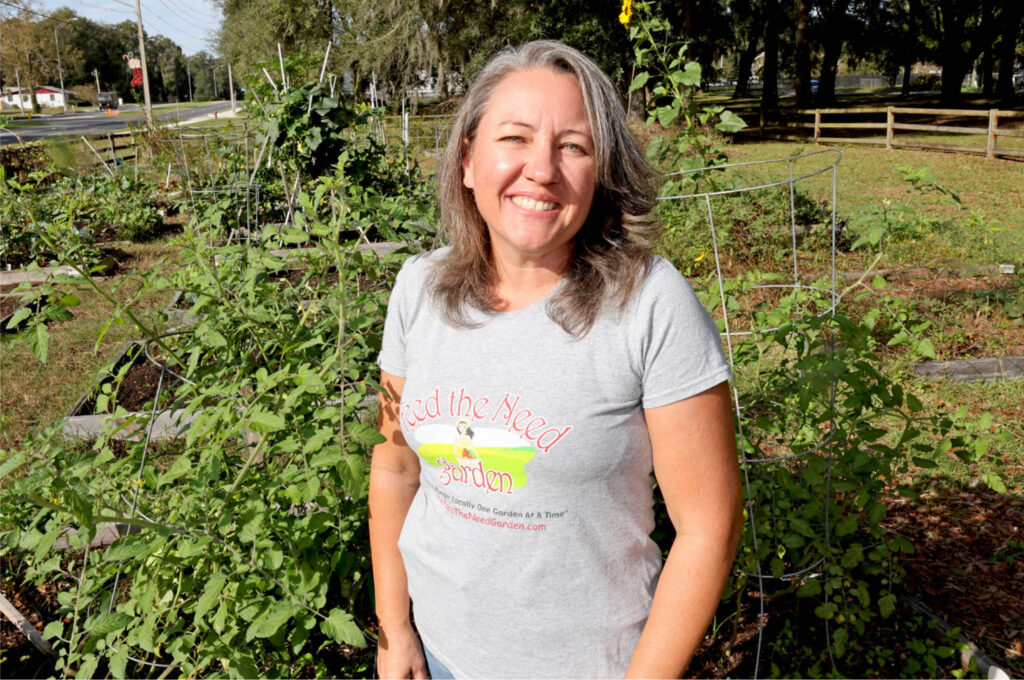
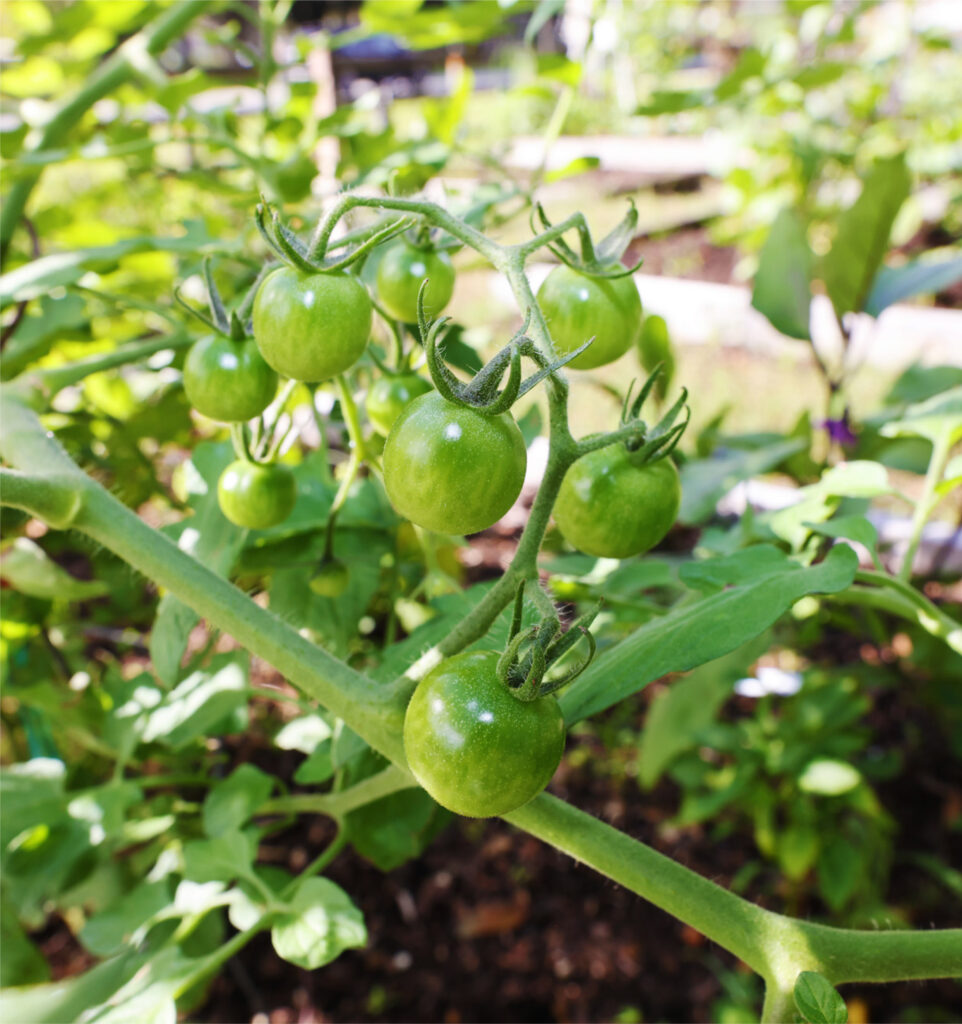
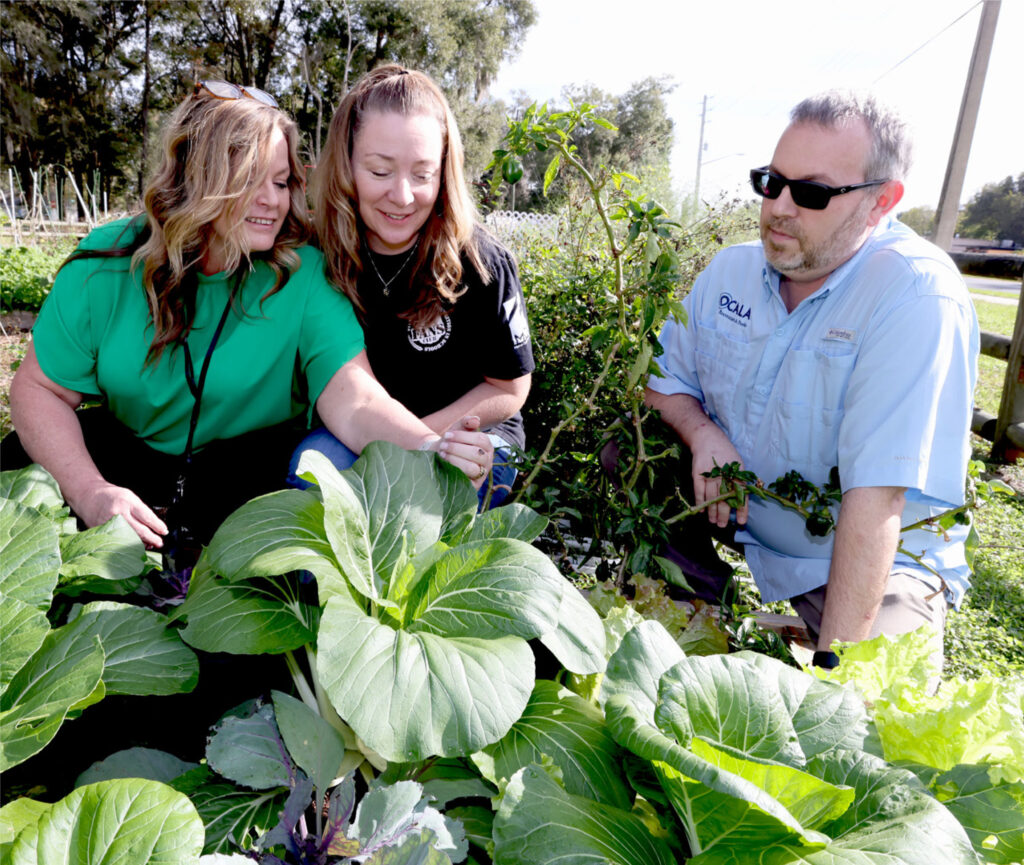
“There used to be a lot of young people and families, and children would come to the garden. Since COVID, we’re seeing a lot more seniors,” offers Tyler. “I live in a senior development, and I have a small yard, so this works perfectly for me. We try to come once a week but I’m going through cancer right now and sometimes with chemo I can’t come like I used to, so Penny covers for me. It is a family, a community family. And tell the city don’t ever try to take it away.”
“I am retired, and I do not want to waste my time watching TV. I just love gardening, all my life,” enthuses Goh, who has six raised beds. “It makes me happy. And if I am ever sad, I put a chair here and watch all my plants and then I’m happy.”
Goh notes that during December, her beds were filled with fresh “chard, kale, bok choy, collard greens, mustard greens, cabbage, tomatoes and bell peppers. It depends on the season.”
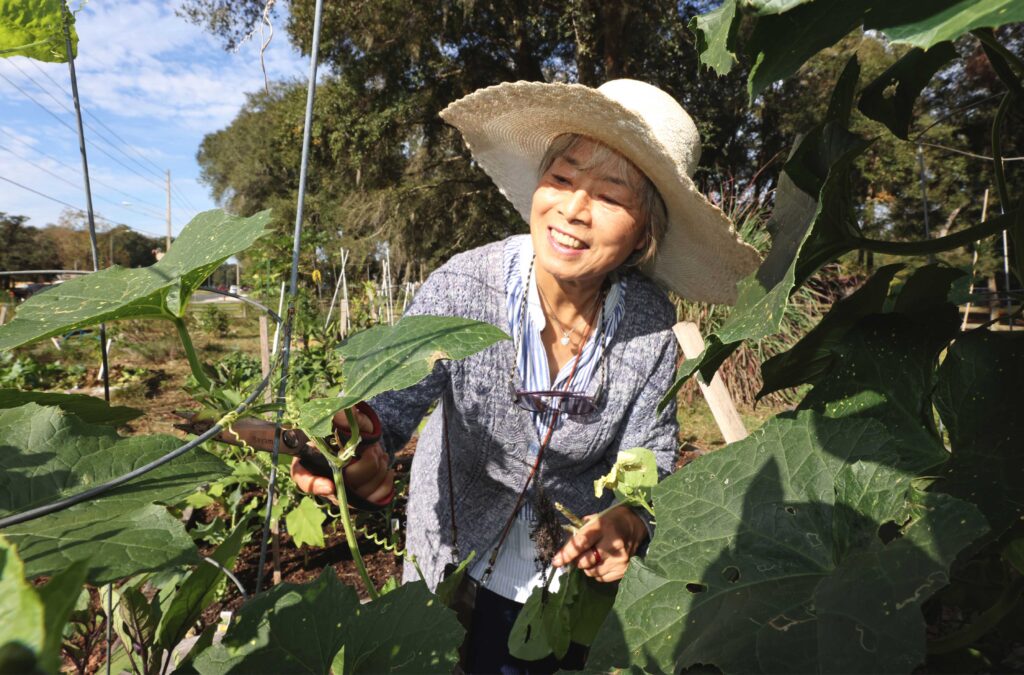
She comes to the garden daily, usually for three or four hours.
“You sweat, but when you love something, it doesn’t feel hard,” she offers. “You enjoy every minute.”
Roper says the garden currently has 75 raised beds and three elevated beds for easy accessibility.
“We started with 25 beds and have expanded,” she notes. “Originally, this garden did not have papaya trees or pigeon peas or moringa or lemon grass. It started with traditional vegetables, like this time of year would be broccoli, lettuce, cabbage, cauliflower, collards, different greens. It just grew from there. The participants have learned what they like to grow, like to eat and have added to that and brought their own things to grow, which I love, and that way the person gardening next to them learns about something that maybe you wouldn’t see in the grocery store, like moringa leaves or curry leaves.”
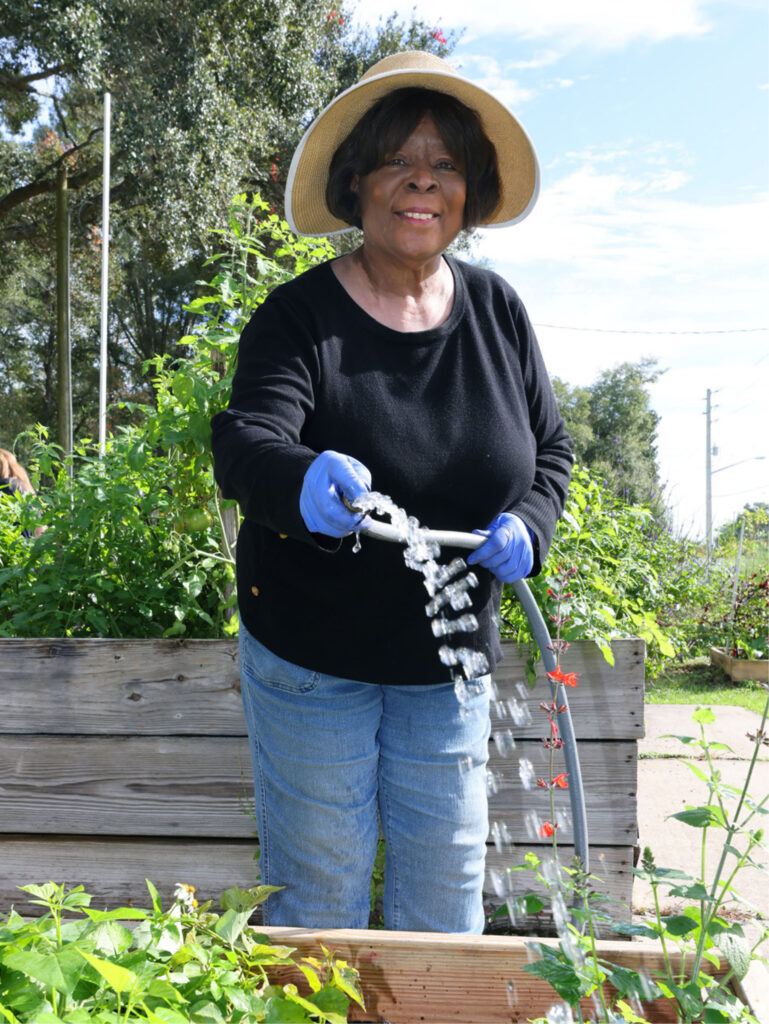
And, she adds, “For me, education is key. I said I don’t want to just grow food and give it away because what happens if that resource isn’t available anymore. People need to know how to grow their own food. To me, it’s heartbreaking knowing we have people going hungry in our own community. That’s how Feed the Need started.”
Feed the Need Garden also has gardens in Belleview and other locations and is partnering with Second Chance Church to create an “agricultural farm” on 31 acres on County Road 484.
“We just started a community garden there that will be expanded to include more gardens, fruit trees and livestock,” Roper explains, “and we just put up a building to teach classes out of. We start with raised beds and then expand on different ways of growing.”
Jessica Cole, vice president of community health programs for the Marion County Hospital District (MCHD), notes that her agency also has gardens throughout the county.
“One of our internal programs is FANS, Fitness and Nutrition in Schools. We have raised garden beds at all public elementary schools in Marion County. At the middle and high schools, we have greenhouses and hydroponic systems. The idea is we start them off young, learning to grow their own food and that healthy food really does taste good. They are more likely to try it if they are growing it. As part of FANS, we want families in the community to also be involved in growing their own food, and wellness and nutrition, so we are involved in several community gardens, in Ocala, Belleview and at Greater New Hope Church in Silver Springs Shores.”
The MCHD also has several “therapeutic” gardens, such as those at SMA Healthcare (formerly The Centers), which offers mental health services, and Beacon Point, a MCHD facility that provides inpatient detoxification and residential substance use services.
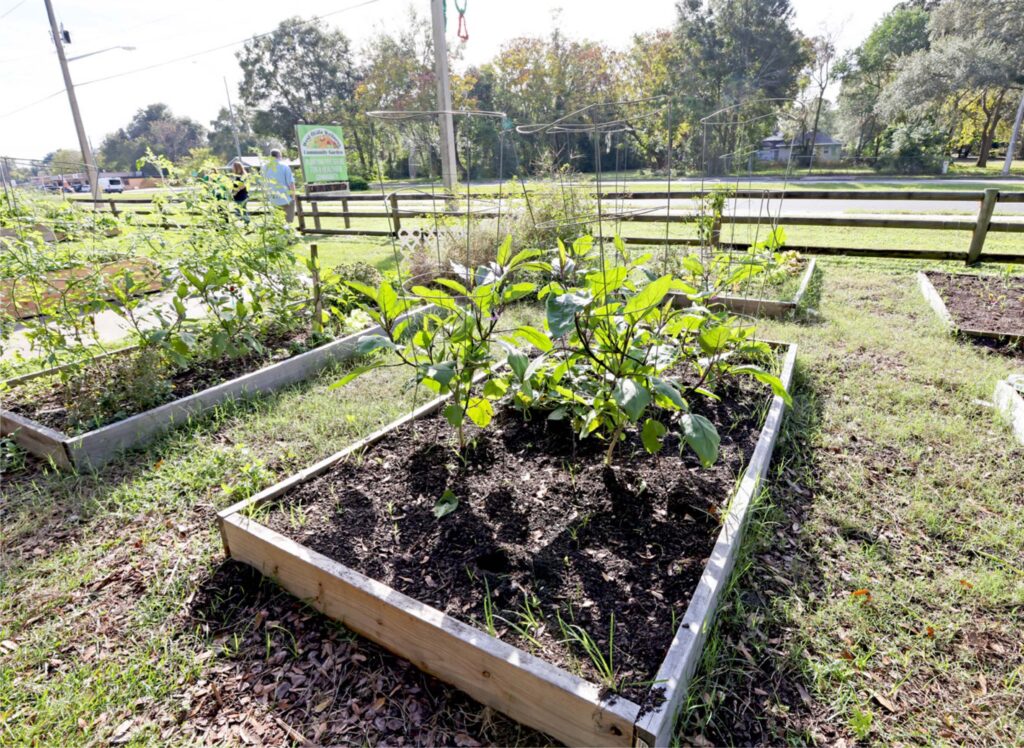 “Gardening can be very therapeutic and if you’re growing your own food, you’re likely to be a little bit healthier,” Cole notes. “Part of the initiative is to bring it all full circle to impact youth and adults in the community.”
“Gardening can be very therapeutic and if you’re growing your own food, you’re likely to be a little bit healthier,” Cole notes. “Part of the initiative is to bring it all full circle to impact youth and adults in the community.”
How the partners work together includes financial support and digging in the dirt.
“We manage the property we sit on,” says John Spencer, a division head with Ocala Recreation and Parks, as he motions around the expansive fenced-in garden area, which is visible to travelers on the boulevard. “Feed the Need is our educator on gardening and Florida native plants and what’s in season, the Marion County Hospital District is educational support and financial support, and the health department is a financial supporter. All of us send someone on workdays and help with bed building and cleaning. We all get our hands dirty.”
Cole says Roper “is a wealth of information” for the garden in West Ocala.
“Rachelle is great about setting up quarterly plantings and is amazing with the educational component,” Cole explains. “And she will purchase items if they need to rebuild beds, all of the plants, fertilizer; she invoices me and that’s part of our investment in the community.”
Cole adds that the impact of this garden, and others, is personal.
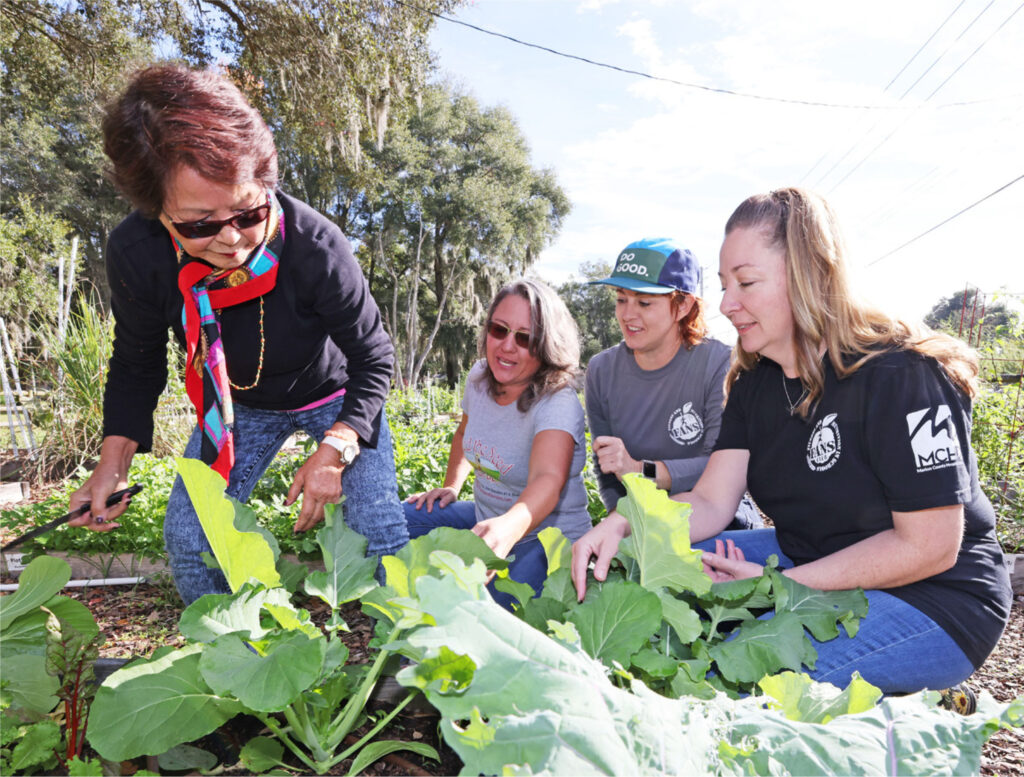
“Eating vegetables is important for overall health and wellness. I’ve seen it work within my own family,” she shares. “But I know with some folks it can be a challenge if they don’t know how to access healthy food or are worried about finances. For me, a huge part of the initiative is trying to make it affordable and accessible for individuals in the community. There is so much research and I’ve seen it personally that eating healthy and getting more fruits and veggies in your diet really can have a huge impact on chronic diseases.”
The MCHD diabetes initiative offers free classes and partners with other entities to offer support and education.
“We talk a lot about incorporating veggies in your diet,” Cole says of that initiative. “I know how important prevention is.”
And, she adds, “It makes a huge impact to teach them at an early age. It’s fun to hear a kid say, ‘Oh, that’s where a carrot comes from,’ because they don’t know unless you show them. It’s amazing.” OS
Learn more at bit.ly/ocalawellnesscommunitygarden






